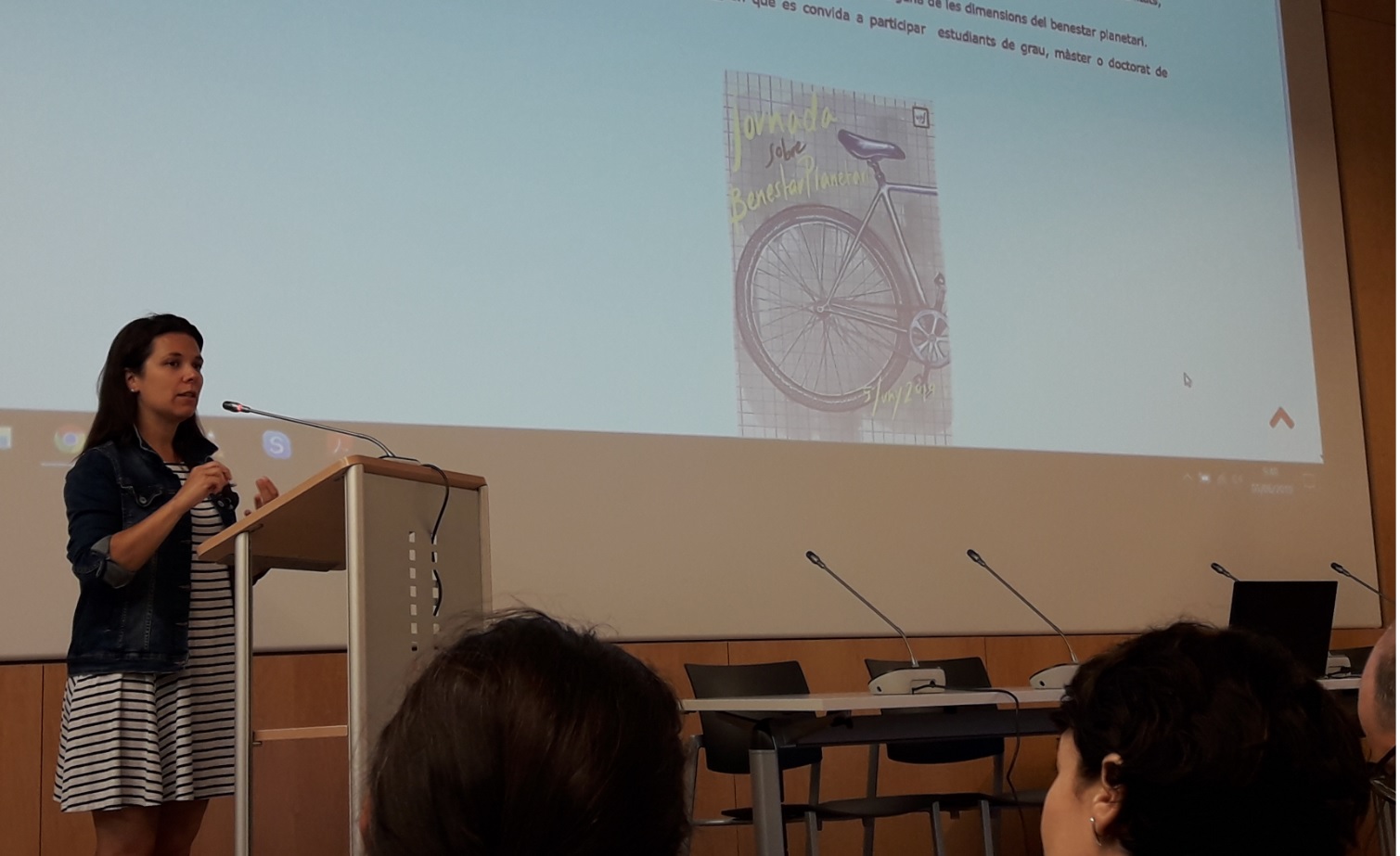The need for more active citizens in the consumption and production of energy is the focus of the opening speech at the 1st Seminar on Planetary Wellbeing
The need for more active citizens in the consumption and production of energy is the focus of the opening speech at the 1st Seminar on Planetary Wellbeing
The session included the presentation of the UPF Planetary Wellbeing project and addressed the role of universities concerning this key issue. Prizes were also awarded for the 1st Poster Competition on Planetary Wellbeing.

Coinciding with World Environment Day, the UPF Centre for Sustainability Studies organized the 1st Seminar on Planetary Wellbeing. The Seminar, presented by Professor Mònica Figueras, vice-rector for project management for social commitment and equality, involved the participation of Sara Pizzinato, patron of Fundación Renovables, for the inaugural conference.
In her speech, Pizzinato demanded a more intelligent, renewable and democratic energy model, with more active participation by citizens, and she referred to the recently approved European Directive on renewable energy. In fact, one of the main novelties of the new European framework, and one that has generated the most controversy among member states, is the recognition of citizens’ rights as active agents in the electricity sector. By way of example, the Directive establishes a clearer, more stable framework for domestic self-consumption or for energy exchange, which leads to more autonomous citizens. Moreover, Pizzinato also warned of the risk that this might cause in a transfer of the responsibility from enterprises (responsible for the generation of waste and, therefore, its due treatment) to the individual. In this regard, although the regulation of consumption and individual self-conscience is essential for the transition towards a more sustainable model, so is the establishment, by the authorities, of binding environmental criteria for companies.
The event also featured the participation of Josep M. Antó, one of the coordinators of the Planetary Wellbeing project launched by UPF. In his speech, Antó argued how the health of the planet and of humanity are intrinsically related and he warned of the urgent need to develop new institutional and governance models capable of responding to them. He also upheld that the new knowledge generated on the subject must necessarily be multidisciplinary in nature, since the problems to be dealt with are complex, interrelated and systemic; and he called for the transformation of the current health research and transformation systems.
The session also included two round tables. The first, chaired by professor Ester Oliveras, rector’s delegate for sustainability, dealt with the work carried out at universities in the field of Planetary Wellbeing. The session involved professor Núria Almirón, director of the Centre for Animal Ethics at UPF, who spoke about denialism, the failure to act against climate change and the role of think tanks in Europe; professor Jordi Mir, of the Department of Humanities, who presented the work of the Social Movements Research Group (CEMS) in the context of possible ideas and movements for a sustainable world; and finally professor Carina Hopper (ESMOD ISEM Fashion Business School, Paris), who addressed the role of business studies in sustainability, specifically in the fashion industry.
During the second round table, chaired by Ana Freire, coordinator of the Centre for Sustainability Studies, measures by UPF to advance towards Planetary Wellbeing were presented. In this session, Ester Oliveras reviewed the major institutional initiatives that are being carried out in research and teaching; journalism student Manel Riu presented the project H2050 on how to focus the debate with regard to climate change and, finally, students Carina Casadesús and Virginia Soler presented their work by the Association of Students for the Environment (EEA).
The event ended with the delivery of the awards of the 1st Poster Competition on Planetary Wellbeing, whose winners were the following projects: 1st prize (academic poster): “Terraforming Semiarid Ecosystems”, by Blai Vidiella, a doctoral student on the Biomedicine programme; 2nd prize (poster): “Keep in Mind. It’s our Planet”, by Manuela García, a second-year student of the bachelor’s degree in Global Studies, and 3rd prize (academic poster): “Archaeology of ancient agricultural systems from Amazonia and its contribution to sustainable food production”, by Javier Ruiz-Perez, a PhD student on the History programme.
